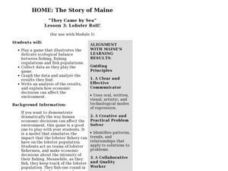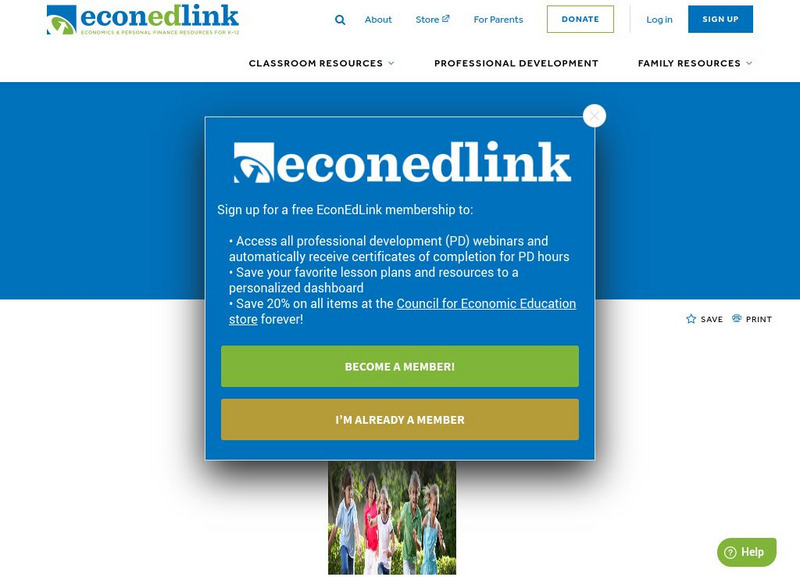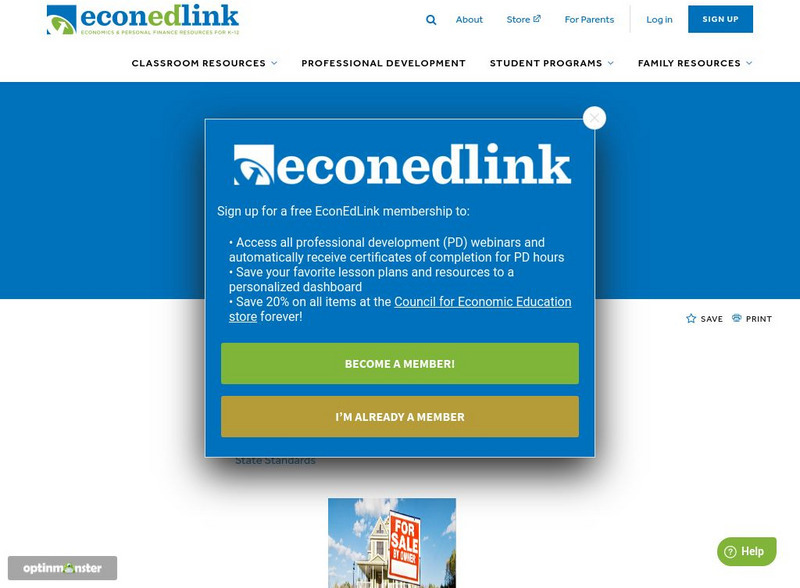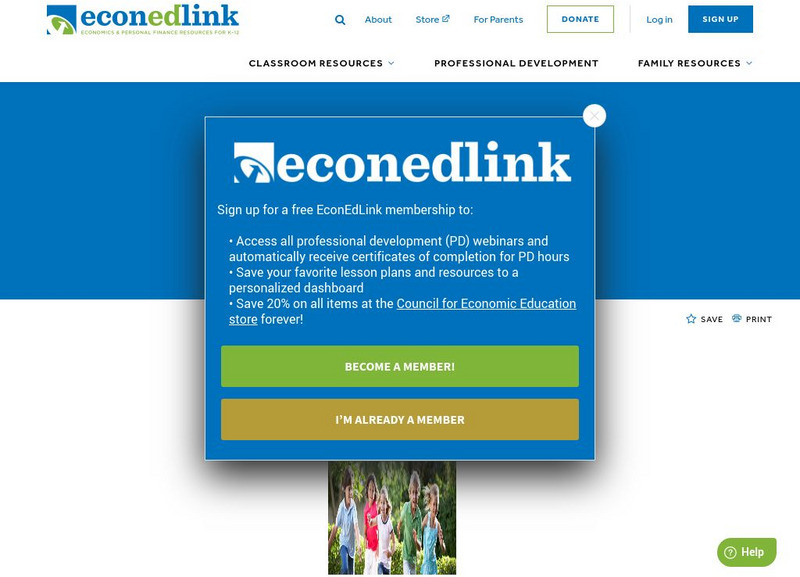Curated OER
Stay in School
Tenth graders explore the consequences of not taking responsibility for their own development.
Curated OER
Good Brother, Bad Brother
Studetns study how biographers create characters and history of individuals in biographies. They complete a variety of writting activities to demonstrate understanding.
Curated OER
Lesson 3: Lobster Roll!
Students play a game that illustrates the delicate ecological balance between fishing, fishing regulations and fish populations. They collect data and analyze the results.
Curated OER
Scientists and Statesmen in Early America
Explore the historic and cultural context of the foundations of the United States of America. They identify the political and scientific contributions of early American scientists.
Curated OER
Wickets & Woozles Exile Simulation
Students divide into two groups and become Wickets and Woozles. They are separated in the classroom and then participate in a simulation activity in which one group is in "exile." They follow the activity with a class discussion and...
Curated OER
Where to Live?
Students examine types of spatial data found in a GIS. In this geography lesson students use a GIS to facilitate analysis and decision making.
Curated OER
Powering a Green Earth
Students compare and contrast renewable and nonrenewable energy. In this environmental science instructional activity, students discuss the importance of going green. They identify the different components in a power grid system.
Council for Economic Education
Econ Ed Link: The Economics of Homebuying
This instructional activity analyzes the costs and benefits of homeownership and asks the student to describe the factors that affect affordability, use cost-benefit analysis and knowledge of home-buying procedures to reduce the costs,...
Council for Economic Education
Econ Ed Link: The Economics of Income: Which 'Wood' You Choose?
A key turning point in a nation's economic development is when it starts to use its resources for long term versus short term purposes. A natural resource example is trees: should people use wood for cooking food or building homes?...
Other
Federal Reserve Bank of New York: Econ Explorers Journal [Pdf]
In this collection of lesson activities, learners will complete an "Econ Explorers Journal" to help them learn how economics is involved in their neighborhood, the books they read, in earning a living, at their banks, in their homes, and...
Council for Economic Education
Econ Ed Link: The Mystery of Is It Mine or Ours? (Educator Version)
Did you ride to school on a road today? Yesterday did you skate in a public park? Maybe Mom or Dad traveled home from one of your ball games on their bicycles under a string of street lights? How did the road, the park or the street...
Council for Economic Education
Econ Ed Link: Buying vs. Renting
Have you given any thought to where you will live when you are "on your own" - out in the world earning a living? You will have many decisions to make as you look for a place to call home. In this lesson, your basic economic decision...
Council for Economic Education
Econ Ed Link: Incentives Influence Us
Find out more about the concept of incentives in our economy through this lesson plan. "You will identify incentives used at home and school."
Council for Economic Education
Econ Ed Link: Cpi the Crystal Ball
Governments and other financial organizations are constantly measuring trends in the economy to try to predict what will happen next. The ability to successfully predict economic trends has a profound effect on whether or not a business...
Council for Economic Education
Econ Ed Link: The Road to Emerald City Is Paved With Good Intentions
'The Wizard of Oz' is perhaps the most popular film ever made. Generations of families have enjoyed this classic tale of Dorothy's struggle to return home from a faraway land. What is not well known, however, is that 'The Wonderful...
Council for Economic Education
Econ Ed Link: What Are Incentives?
Young scholars will understand that incentives are used to encourage them to make good choices. After identifying incentives offered at home and in school, the students will distinguish between positive and negative incentives.
Council for Economic Education
Econ Ed Link: The Mystery of Is It Mine or Ours?
Students will learn that people respond predictably to positive incentives (rewards) and negative incentives (penalties). They will identify incentives in their daily lives at home and school. Students will discuss which incentives have...
Council for Economic Education
Econ Ed Link: Hey Pop!
One of the best sounds and smells is fresh popcorn! At the movies, at the fair, or at home, everyone likes to munch on popcorn. What is your favorite brand? Is the most expensive the best? You will conduct a taste test to find out. You...
Council for Economic Education
Econ Ed Link: The Mitten
This is a folktale retold by Jan Brett about a little boy whose grandmother knits him a pair of snow-white mittens. While the boy is outside playing, he loses one of the mittens and some animals find it and move thinking that it looks...
Council for Economic Education
Econ Ed Link: No Room for a Sneeze
This lesson teaches students about scarcity and standard of living. In the book "No Room for a Sneeze", a folktale retold by Robyn Supraner, a farmer and his wife must deal with scarcity in their home so they turn to the Wiseman for...
Council for Economic Education
Econ Ed Link: Be an Energy Saver
This lesson focuses on the scarce and non-renewable nature of fossil fuels in order to stimulate student thinking about energy conservation. It emphasizes the fact that saving energy can be good for the wallet as well as the earth's...
Council for Economic Education
Econ Ed Link: Buying vs. Renting
This site has an introduction to the factors involved in the decision to rent or purchase housing. The site discusses space needs, lifestyle, financing options, tax benefits, and more.















